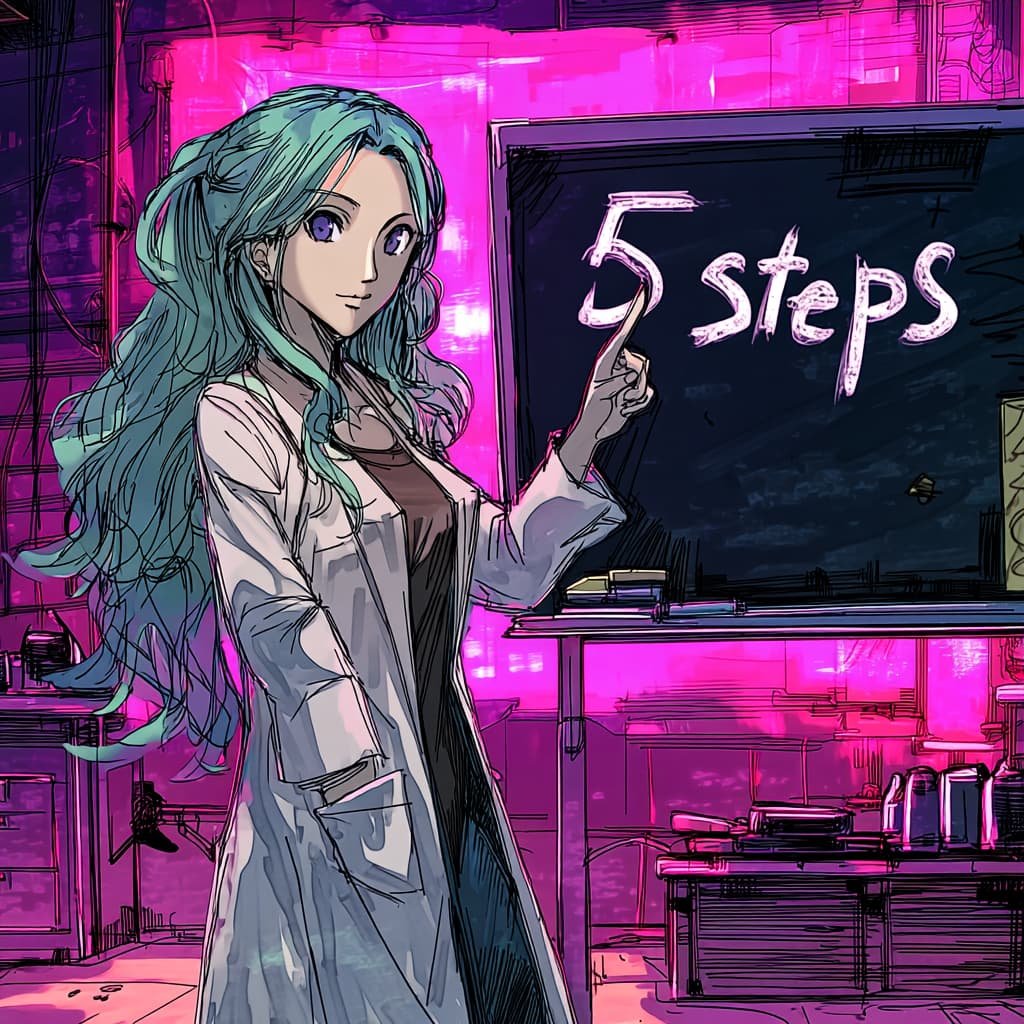OCD and Confessing: How to Unstick From Compulsive Confessions

When you’re experiencing OCD and confessing, do you constantly feel like you’re on trial?
Like you have an overhwelming urge to confess to things that you’re not even sure happened?
It might feel like you’re just being honest, but sometimes, that urge to confess has less to do with truth and more to do with OCD’s story than your own.
Here’s why OCD can tempt you to confess and exactly how to take back control.
What is OCD Confessing?
OCD confessing, also called compulsive confession, is when someone with OCD shares a thought, memory, feeling, or action, sometimes openly, sometimes in subtle or indirect ways, with the intention of relieving guilt, doubt, anxiety, or fear.
The urge to confess can focus on a single topic or move between different themes, shaped by real events, false memories, or imagined fears.
People struggling with this compulsion often carry intense fears, fears that they’re a bad person, that they might cause harm, or that they’re hiding some kind of wrongdoing, even when there’s no clear evidence to support it.
If you’ve ever said to yourself, “I just need to tell them so I can feel better,” and then felt a short burst of relief followed by even more doubt, you’re not alone. This repeating cycle of relief and doubt can be a typical part of OCD.
OCD confessing is a form of mental compulsion, much like checking or reassurance-seeking. It can be especially tempting, as it often feels like a genuine attempt to be honest, when in fact it may be part of the problem.


Why Does OCD Make You Confess Things?
Imagine a smoke alarm that goes off not just for fires, but for candles, toasters, or steam from the kettle.
It’s reacting as if there’s danger, even when there might not be. OCD can work in a similar way, flagging certain thoughts, feelings and sensations as threatening, especially the ones that feel most uncomfortable or clash with how we see ourselves.
Compulsive confessing may seem like a way in the short term to put out these perceived fires or threats and relieve guilt or doubt but overtime can become part of a vicious cycle.
The more energy and attention that go into relieving uncertainty or discomfort through confessing, the more significance the original thought can seem to have, even when it may not be based in fact.
The Science Behind It
OCD can make it feel much harder to sit with and tolerate uncertainty. Research shows that people with OCD tend to have higher levels of intolerance to not knowing for sure whether they’re good, safe, or moral. Compulsions like confessing may offer short-term relief, but over time they can strengthen the obsession, deepen the doubt, and increase distress.
According to the National Institute for Health and Care Excellence (NICE) guidelines, treatment for OCD focuses on breaking these compulsive patterns through Cognitive Behavioral Therapy (CBT) with Exposure and Response Prevention (ERP).
This involves gradually facing the fear and resisting the urge to confess, even when the urge feels strong, to build confidence in sitting with uncertainty and increase tolerance for discomfort.
Isn’t Confessing a Good Thing?
It can be but in the context of OCD, confession often takes on a different role. What might feel like a sincere or responsible action can, over time, become repetitive, anxiety-driven, and difficult to step away from.
OCD-related confessing may focus on themes grounded in real events, sometimes already addressed, yet still feeling unresolved, or on imagined or uncertain scenarios, where it’s unclear whether anything happened at all. In both cases, the urge to confess is often less about the topic itself and more about escaping discomfort, uncertainty, or guilt, especially since once one fear is resolved; another can often takes its place.
The difference isn’t in the details of the thought; it’s in the function of the behavior. OCD tends to fuel fixation, a sense of urgency, and a drive to resolve things completely.
Confessing may bring brief relief, but it often reinforces the cycle, leading the doubt to return, and the urge to confess again.
Recognising this doesn’t mean dismissing what matters to you. It means becoming more aware of the compulsive patterns at play, and beginning to relate differently to the discomfort they create.



What Worked for Me (This Might Help You Too)
When OCD had a tight grip on me, confessing felt constant.
I’d check in with friends to ask if I sounded rude, replay old conversations in my head, or bring up things that no one else remembered.
The relief? It barely lasted. Soon enough, another “what if?” would take its place.
The turning point wasn’t dramatic; it was the slow realisation that I wasn’t really looking for truth. I was trying to feel better.
And those two things are not the same thing.
What helped me move away from this was practicing doing nothing. Letting the thought be there. No action, no fixing. Just acknowledging:
“This may or may not be OCD talking again. I cannot be certain” Over time, that shift created space between the urge and the response.
How Can I Tell If It’s OCD or a Real Concern?
This is one of the most common, and most difficult, questions people with OCD face. In fact, it’s often a question OCD itself uses to keep the cycle going. OCD feeds on the need for certainty.
OCD may start with a question like, “Did something happen?” but it often doesn’t stop there. It tends to circle back with, “Are you absolutely sure?” again and again.
One key difference between a genuine concern and an OCD-driven thought often lies in why you feel the need to act on it. Some things to consider:
· OCD-related confessions tend to be driven by fear, anxiety, or the need to relieve internal discomfort.
· Healthy disclosures usually come from clarity and a grounded sense of responsibility-not panic or urgency.
· According to OCD-UK, people with OCD often feel a strong urge to confess in order to reduce guilt, shame, or anxiety, even when there’s no clear reason to believe they’ve done something wrong.
A useful check-in might be:
Are you seeking reassurance or actual resolution?
If confessing brings short-term relief but the doubt returns soon after, and possibly stronger, this may be part of the OCD cycle, rather than a sign that something truly needs to be disclosed.


Practical Steps to Stop Compulsive OCD Confessing
If you find yourself caught in the confessing loop, then as a qualified therapist, I’d like to recommend these five steps, rooted in evidence-based CBT, Exposure and Response Prevention (ERP), and Acceptance and Commitment Therapy (ACT), may help reduce its grip over time.
- Pause Before You Confess
A brief pause creates space. Ask yourself:
- Is this urge coming from fear or a real need to take responsibility?
- Have I confessed this before and still feel unsure?
If the urge is more about reducing discomfort than resolving something meaningful, it may be OCD calling the shots.
- Label the Thought
Try noticing and naming what’s happening:
- “I’m noticing the presence of this thought or urge, it might be part of the OCD process.”
- “This is an uncomfortable thought, and I can let it be there without needing to solve or fix it.”
Labeling helps create some distance. Research on thought-action fusion (Salkovskis et al., 2003) shows that people with OCD often overestimate the importance of thoughts. Naming them for what they are, thoughts and experiences, can take some of their power away.
- Sit With the Discomfort
This is at the heart of ERP: letting the discomfort be there without acting on it. It’s not about convincing yourself that everything’s fine, but about learning that you can handle not knowing for sure.
You might say:
“Maybe I did, maybe I didn’t. I’m not going to try and solve it right now.”
The NHS describes intrusive thoughts as “unwelcome thoughts… that don’t reflect your true feelings or intentions,” that are a recognised part of human experience, including in people without OCD. The fact that a thought shows up doesn’t make it inherently factual. It’s an experience, not something that automatically carries meaning, truth, or significance.
- Track Your Triggers
Noticing patterns in your OCD can be a helpful way to step back from the urge to treat each thought or feeling as urgent or unique. OCD often follows familiar themes, even if the content shifts slightly.
Try keeping a brief, factual log, ideally at a set time of day, rather than in response to distress. The goal isn’t to analyse or fix anything, but to build awareness of compulsions and highlight that it’s the pattern of reacting to the thought, not the thought itself that tends to keep people stuck.
Examples:
• Monday: Urge to confess after sending a message. Noticed it, chose not to act.
• Wednesday: Similar urge. Recognised the pattern. Let it be.
- Respond With Confidence, Not Compulsion
You don’t need to argue with the thought and you also don’t have to follow it.
A simple response like:
“This thought or feeling is here right now. I don’t need to fix it or figure it out. I can bring it with me and keep moving toward what matters.”
This can help take the urgency out of the moment. This isn’t about minimising your experience, it’s about changing your relationship to it.


TL;DR – Recap
· OCD-related confessing is often about easing doubt or anxiety, not addressing something concrete.
· The more you confess the more significant or “real” the thought may start to feel, regardless of whether it’s grounded in fact.
· Learning to pause, label, and sit with discomfort can help break the cycle.
· CBT with ERP is the gold-standard treatment recommended by NICE and the NHS.
· You don’t need absolute certainty; creating space to choose a different response can reduce how much OCD dominates your behavior.
Free Support-No Pressure
If you’re struggling with OCD & confession right not and want to work with a qualified therapist who has personally recovered from OCD, please feel to click below to book a free consultation.
No pressure, no judgment, just understanding and support, if and when you’re ready.

